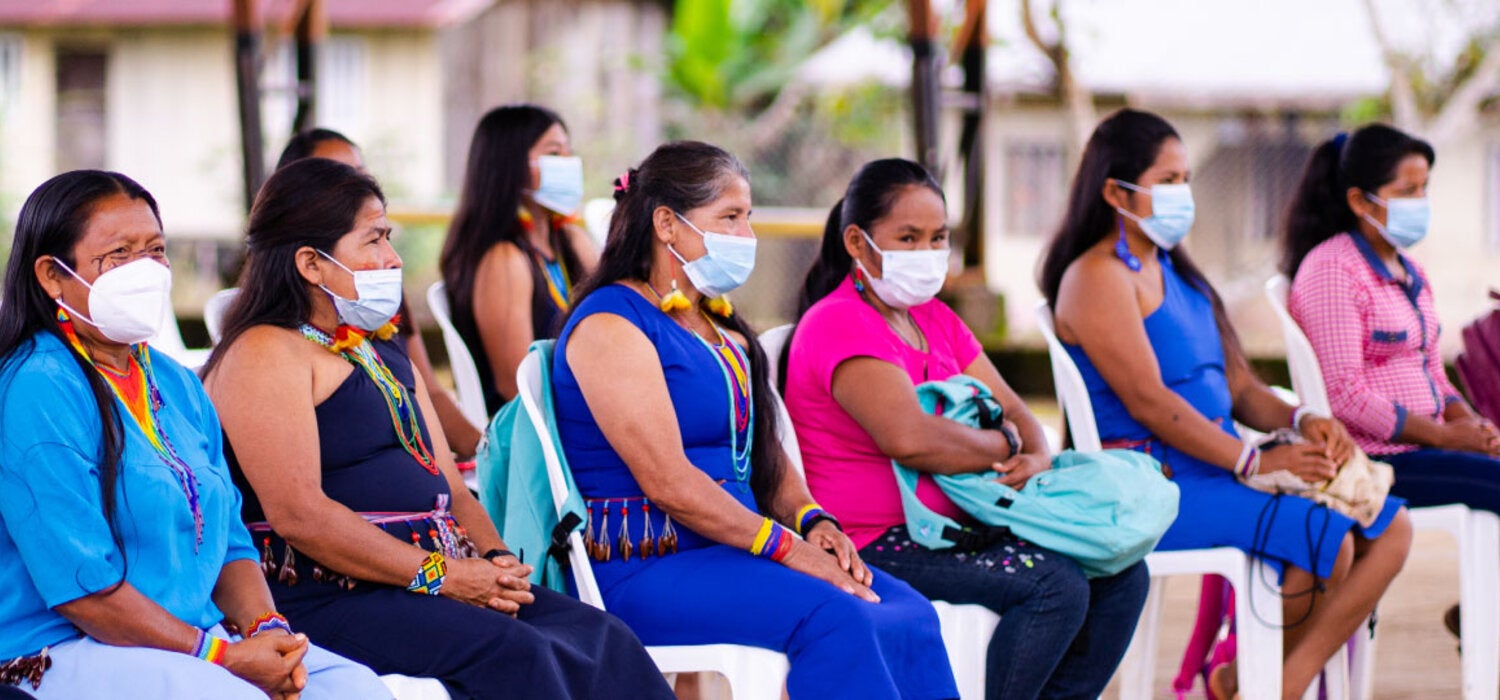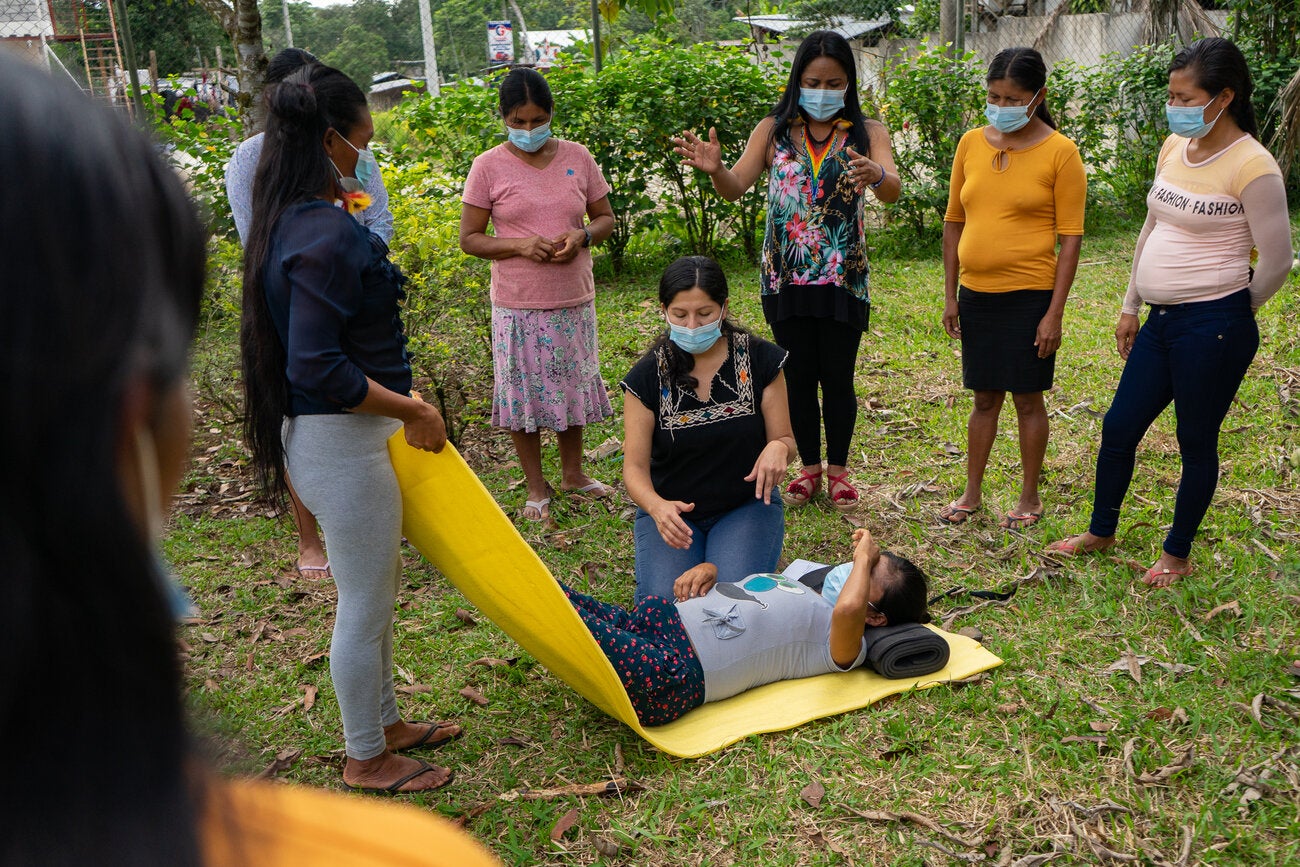From the beginning of the pandemic until 26 November of 2021, there were 710,027 confirmed cases of COVID-19 reported among indigenous people in 18 countries of the Americas, of which 16,860 died from complications related to this disease (including 6,560 cases and 226 deaths reported in indigenous people in Ecuador).
— October 2021 —
Ecuador is a multi-ethnic country with a wide cultural diversity, made up of 18 indigenous nationalities and 14 traditional and diverse indigenous villages, which are distributed in different geographical areas of the country. In many cases, there are no roads to these communities, and entry is only possible by river or small aircraft transportation. The remoteness of the locations, among other socioeconomic realities, makes it difficult for these indigenous communities to access health services, a fact that represented a greater challenge for the execution of response activities to the COVID-19 emergency.




